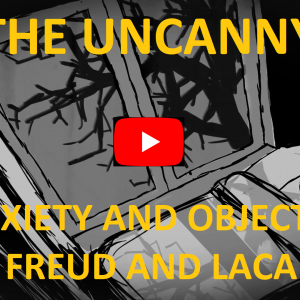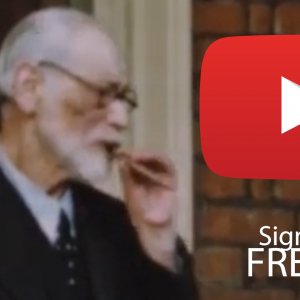5 Lacanian Cinematic Clichés that Hollywood Loves – I
1. The Absent Father
Case in point: Man of Steel
I start this short series with what is perhaps the most consistently ubiquitous and easily noticeable of all cinematic clichés to harbour Lacanian overtones. To name just a few of the biggest films of the past 12 months, Man of Steel, World War Z, Skyfall, and Only God Forgives each have the Absent Father as a central motif. In these and so many other films the function of the absence of the father is a key plot element that motivates the actions of the protagonist. Hollywood at least varies its repertoire – in some cases this is the death of the father, in others simply his not being there. For instance, in the majority of Hollywood films and TV series that feature male characters as fathers there is a plot point that involves their failure to bring together their status as biological fathers with their position as symbolic fathers.
Man of Steel
To take a particularly concise example from just one recent Hollywood film, the latest episode in the Superman franchise presents the father as both dead and absent under the guise of two separate fathers.
On the one hand, we have Superman’s biological father, Jor-El, played by Russel Crowe, seen at the beginning of the film evacuating his son from his dying native planet. On the other, we have the ‘symbolic’ father, Jonathan Clark, played by Kevin Costner, who adopts Superman when he arrives on earth.
(Spoiler alert!)
It is the latter’s death halfway through the film that provides the plot element mentioned above that motivates Superman to become Superman, and allows him to accept his destiny and confront the threat facing earth.
But what both characters mesh is the Lacanian idea that to perform the function of father his status must be symbolic and not just biological.
The ‘No’/’Name’ of the Father
In a key scene, the Clark family comprising the young Superman and his adoptive parents are caught in a tornado whilst driving down the freeway. While Clark and his adoptive mother run to safety under a bridge, Jonathan Clark stays behind with the car. As the tornado gathers pace, Clark becomes aware that his adoptive father is in real trouble and realises that he can save him using his superpowers. However, Jonathan Clark, fearful that the public revelation of his son’s powers will have terrible consequences, stops him with a single gesture of the hand:
This scene perfectly illustrates why Lacan uses an ambiguous term to denote the father’s symbolic role. What he calls the Name-of-the-Father is in French the Nom-du-Pere. However, punning (as he was wont to do), Lacan often refers to the Non-du-Pere, or No-of-the-Father, the French words nom and non being pronounced identically in that language. What more perfect example of this ‘No’ of the Father could there be than Kevin Costner’s injunction to Superman not to save him from certain death in the tornado?
This scene is a crucial turning point in the film. It gives the protagonist, Clark Kent, a sense-of-self that is only realised as a result of the prohibition – the No/Non of the Father.
Following this scene, Clark goes in search of his true identity, to find out who his biological father was. It is at this point that he discovers the Name of his Father – Jor El – and his own – Kal-El, meaning ‘son of El’. Both father characters thus illustrate the ambiguity that Lacan highlights in the role of the father with his play on the French term above.
The key Lacanian point is that the father continues to function as symbolic father despite his flesh-and-blood absence. In both cases the father is dead, but in both cases he continues to operate in the way that Lacan specified with his ambiguous expression. In the Kevin Costner character, the adoptive father functions in respect of his prohibition, his Non [No]. In the Russell Crowe character, the biological father functions in respect of his Nom [Name].
As in other instances of this cliché in Hollywood, this plot device is vital to the protagonist’s development – the character of Clark Kent only transitions to the character of Superman as a result of the absence of the father. The father’s death or absence is the causal, motivational factor compelling the protagonist’s personal mission, something that we see again and again in Hollywood films.
The passage through the Father
Man of Steel also nicely illustrates a key aspect of the oedipal relation that both Freud and Lacan were interested in – the idea that something is passed from father to son. In the case of Man of Steel this is a role, a destiny. For Freud, this passage marked the successful resolution of the oedipal conflict – rather than remaining in homicidal competition with your father (biological or symbolic) for something that he has (in Freud’s mythical form from Totem and Taboo, this is the women of the primal horde) the oedipal drama ends with the father bequeathing to the son a role that he has to assume and which effectively passes the role of ‘man’ onto him. In Man of Steel, this is the role of Superman, the destiny that Clark Kent accepts from the avatar of his biological father which he encounters following the death of his adoptive father. The father himself, whilst physically absent, nonetheless still performs his function in order to effect this transition.
By Owen Hewitson, LacanOnline.com

All content on LacanOnline.com is licensed under a Creative Commons Attribution-NonCommercial 3.0 Unported License.






The passing of a role gives a son the possibility to acquire a compass about how to become a man-among-other-men, instead of becoming THE man, or what I call the All-One-Father. This is what puberty rites used to be about, in the societies where they operated. See Freud’s preface to Wedekind’s play Spring Awakening (commented upon by Lacan), and Theodor Reik’s The Puberty Rites of Savages.